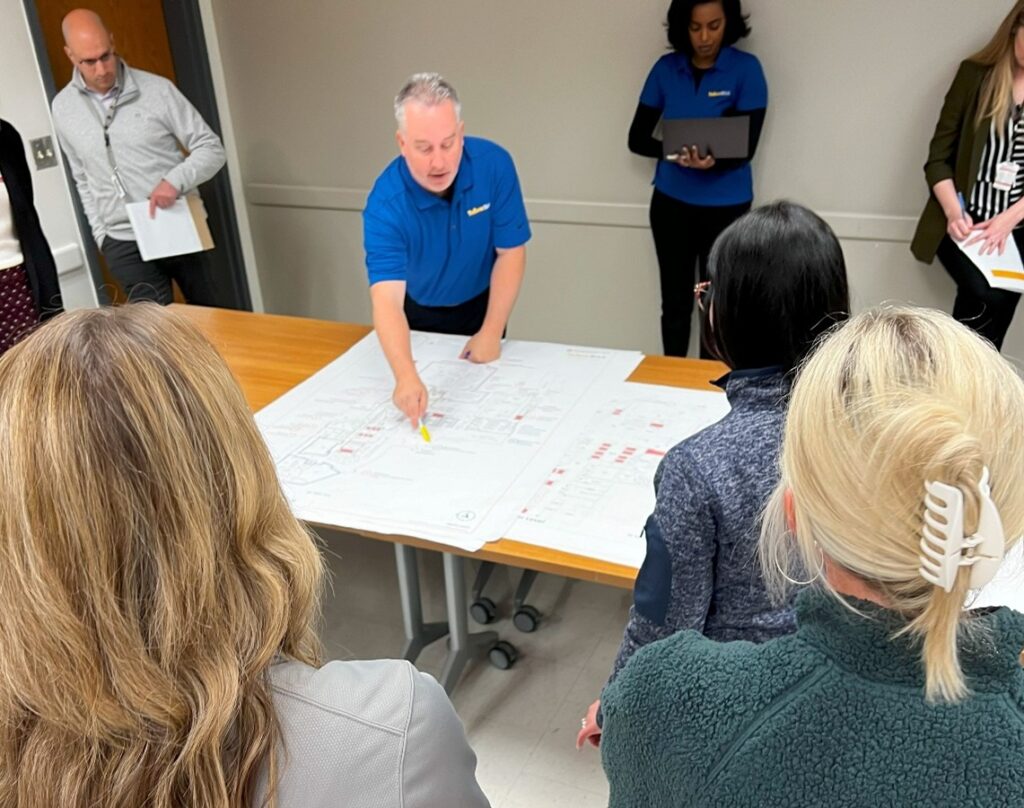By Jeff Agner, MPH, LBBP
In celebration of Father’s Day, we asked our own Director of Transition and Activation, internal MacGyver and Father Extraordinaire to share how he balances work and life, while making it look so easy. Below is what he had to share.
“I am very fortunate to be a few different types of dad.” – Jeff Agner
Type 1: Girl Dad
First and foremost, I am a Girl Dad. As the father of two daughters, ages 9 and 12  (going on 35 and 18, respectively), I embrace the duty and privilege of supporting their ambitions, encouraging their confidence, and empowering their independence. I play catch with them in the yard and film their horseback riding lessons. I offer heartfelt real-world advice, always balanced with terrible puns and lame jokes. In return, I am gifted with being in the know about the latest middle school slang and being a self-proclaimed master in the ancient art of the speed-braid, practicing it each morning we’re running late for school—which is every morning. A definite risk is my toenails remain in constant jeopardy whenever a new nail polish color enters the house.
(going on 35 and 18, respectively), I embrace the duty and privilege of supporting their ambitions, encouraging their confidence, and empowering their independence. I play catch with them in the yard and film their horseback riding lessons. I offer heartfelt real-world advice, always balanced with terrible puns and lame jokes. In return, I am gifted with being in the know about the latest middle school slang and being a self-proclaimed master in the ancient art of the speed-braid, practicing it each morning we’re running late for school—which is every morning. A definite risk is my toenails remain in constant jeopardy whenever a new nail polish color enters the house.
Type 2: Car Dad
I am active in Southern California’s classic car community and feel fortunate to share my enthusiasm with my daughters. Each has staked a claim on some of my project cars—vehicles that may one day be theirs if they still find them interesting. 
On some weekend mornings, when I head out early for events, I might spot a sleepy figure in pajamas, blanket in tow, making their way toward the car. I will never say no when they want to join me for a brisk canyon drive, and I love indulging their mechanical engineering curiosities. Someday soon, they will learn the lost art of driving a stick shift and how to verify a mechanic’s quote. They already know how to change a tire, drain engine oil, and, when necessary, turn the radio up just a bit louder to drown out that worrisome sound coming from the rear of the car.”
Type 3: Scout Dad
Aside from the daily joys of being a Girl Dad and the weekend adventures as a Car Dad, I also find myself in the role of a Scout Dad. As the Cubmaster for the local Cub Scout Pack where my younger daughter is a Bear Scout and an adult leader with my older daughter’s Scout Troop, I have the opportunity to interact with my daughters and their friends in an environment where they’re learning skills and participating in activities they wouldn’t typically encounter in school, on sports teams, or in martial arts. I get to stand back, watch their interactions, and see their personalities emerge in ways I don’t always see at home.
This perspective brings a few secret joys—like catching them using good manners, the same ones their mom and I were convinced they’d never pick up based on their usual behaviors at home. A key component of the Scouting program is the encouragement of regular recognition of accomplishments, through merit badges and other awards. I try to incorporate some of these motivational tactics into my role as a parent, whether it’s rewarding good grades with a surprise treat or acknowledging chore progress with a similar system.
The girls certainly don’t love arriving early to scout meetings or staying late to clean up, but overall, they like that their dad is in charge. And I like that, in subtle ways, they’re picking up lessons from me along the way.

Type 4: Healthcare Dad
Finally, I am proud to be a Healthcare Dad. Although I am not a clinician, my passion for managing complex healthcare projects and supporting healthcare clients aligns with my personal calling to help others. My daughters believe I work in healthcare but keeping them convinced isn’t always easy. I have a few pairs of scrubs in my closet, though they rarely get worn, and a pile of hospital ID badges—none with logos they recognize. When their teachers or friends ask what their dad does, they simply say, “Something with hospitals.”
Since I often work from my home office, my girls sometimes overhear my meetings, spot cryptic notes on complicated floorplans, or wag their fingers at the unread message count in my inboxes. Occasionally, they’ll see someone on a Teams or Zoom call and ask if the person in the white lab coat is a doctor. I used to always say yes to keep it simple (sorry, CLS friends), but now they’re old enough for me to explain the different roles. Sometimes they regret asking.
I’m proud to teach them what I know about healthcare, and they eagerly fact-check my explanations. Most of the time, I get it right—thanks to my team and the lessons from past and current clients. My daughters get a glimpse of the notepad on my desk and ask me why healthcare has so many acronyms. I tell them that when things are complicated, adults shorten them to make them simpler. They remain unconvinced.

